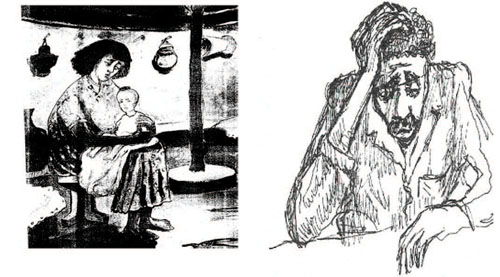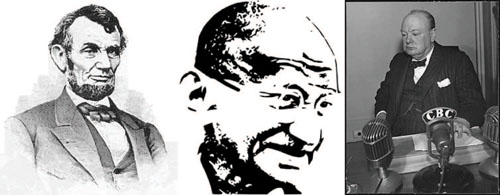What depression is and why it is important
Usually people's feeling state (mood) varies depending on the events that happen around them. Sad events such as sickness or the death of a loved one produce a sad mood. Happy events, such as attending a wedding, induce a happy mood. These changes in emotional state or mood enrich the experience and enjoyment of life and are normally under the control of the individual experiencing them. However, sometimes individuals lose control of these changes in their emotions (see Figure 12.1).

There are three ways in which such loss of control happens:
- Their mood fails to change according to the circumstances, i.e., happy situations fail to induce happiness and sad situations fail to induce sadness.
- Their mood changes excessively or for longer than it should, i.e., a sad event induces a much deeper level of sadness or protracted sadness, and a happy event induces excessive happiness.
- Individuals develop intense sadness or happiness for no clear reason or unrelated to outside circumstances. When such loss of control over the emotions happens for a long time, it is likely to be an expression of depression (low mood) or mania. Mania is discussed in more detail in Study Session 13.
Depression is a serious illness. When a person is depressed, the person has feelings of sadness that are excessive for the situation that has brought them on or the sadness lasts for an unusually long time. These feelings are so severe that they interfere with daily life.
Depression is important because it affects many people and causes a high level of distress. It impairs a person's ability to deal with day-to-day problems or to carry out their responsibilities. People with depression have increased risk of death from suicide and from other physical conditions. Depression is also important because it is often under-recognised but can be treated.
About 15% of people in the world will have an episode of severe depression at some point in their lives. Women are more likely to develop depression although this has not been confirmed in Ethiopia.

Depression can affect people of all standing (Figure 12.2) and of any age, including children. A depressed person often loses interest in things that they used to enjoy or like. Depression can cause a wide variety of physical, psychological (mental) and social symptoms (summarised in Table 12.1).
Table 12.1 The main symptoms of depression.
| Psychological symptoms | Biological/physical symptoms | Social symptoms |
|---|---|---|
|
Continuous low mood or sadness Feelings of hopelessness and helplessness Low self-esteem Tearfulness Feelings of guilt Feeling irritable and intolerant of others Lack of motivation and little interest in things Difficulty making decisions Lack of enjoyment Suicidal thoughts or thoughts of harming someone else Feeling anxious or worried Reduced sex drive |
Slowed movement or speech Change in appetite or weight (usually decreased, but sometimes increased) Constipation Unexplained aches and pains Lack of energy or lack of interest in sex Changes to the menstrual cycle Disturbed sleep patterns (for example, problems going to sleep or waking in the early hours of the morning) |
Not performing well at work Taking part in fewer social activities and avoiding contact with friends Reduced hobbies and interests Difficulties in home and family life |